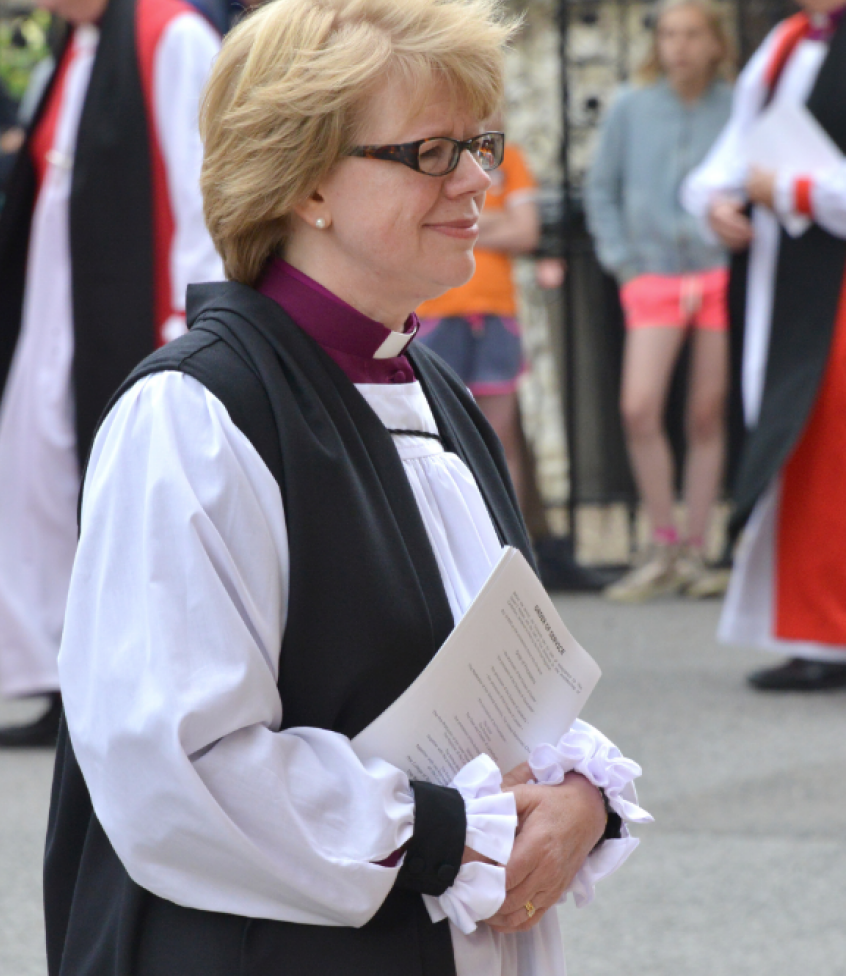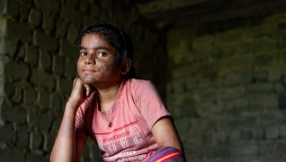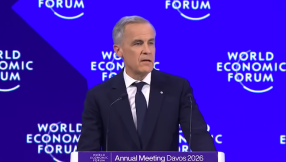Dame Sarah Mullally's appointment as the first female Bishop of London is being welcomed by survivors of clerical sex abuse as a signal the Church's hierarchy is taking the issue more seriously.
Mullally is currently Bishop of Crediton and has been a leading voice for reform in bishops' approach to safeguarding, urging the recommendations of an independent review into failings over one survivor, Gilo, be implemented by the Church of England.

Just two years after being appointed a junior suffragen bishop in Devon, Mullally has jumped ahead of many other women bishops to become the 133rd Bishop of London and as such one of the most senior figures in the CofE.
Gilo, whose surname is withheld to protect his identity, welcomed her promotion saying it 'represents a long overdue turning point' and a sign safeguarding was being prioritised as an issue by Church officials.
'As third most senior bishop, Dame Sarah Mullally can now take a far more decisive role in championing a compassionate and just response with real structural reformation at last,' he said. 'Action is what is required. Survivors need to know that changes are being planned, when they will come in, and how the church can be held accountable to those changes.'
Laying out her priorities for the role on Monday, Mullally said 'safeguarding is at the heart of the gospel'. She added: 'I will continue to ensure a safe culture in which abuse has no place, and where those who have survived abuse can flourish.'
It comes after Ian Elliott, the independent reviewer of the CofE's handling of Gilo's case took the unprecedented step of criticising the Church's response to his own review, focusing on the Church's insurers, Ecclesiastical Insurance Group (EIG), to accuse them of 'repeated misleading comments'.
In particular he addressed the Church's 'Core Groups' convened to address safeguarding responses and said he was surprised that a lawyer from the insurer EIG was represented but the survivor was not.
'The Core Group meeting should have a pastoral focus but this was not my assessment of the ones that I attended. It is rooted in attitudes towards survivors which are totally misguided, misplaced, and unacceptable,' he said.

Phil Johnson, chair of MACSAS (Minister and Clergy Sexual Abuse Survivors) said: 'These core groups demonstrate the extent to which the church is more interested in financial considerations than the well-being and care for victims. Survivors haven't known or been invited with their own legal representative and this is a huge imbalance of power. It gives the insurer massive informational and strategic advantage and potential opportunity to cover its tracks.'
In a statement following an interview with the BBC's Sunday Programme Elliott added: 'Kind words are not adequate. What is needed is action. Survivors need to see the church letting them know what changes will be made, when changes will be made, and how the church can be held to account in terms of those changes.
'The survivors I have spoken to want to feel that what's happened to them is of enough concern to the church that it is keeping the hierarchy awake at night. They don't see enough real concern or impetus for action. Survivors just don't see that at present. So many of the problems the Church of England face are of their own making because of the inertia and resistance to any change.'
Elliott's criticism comes after another review published on Friday found the Church 'rushed to judgment' and smeared one of its most revered figures in its desperation to avoid being seen as soft on clergy sex abuse. This came in the shadows of a seperate abuse case where the former Archbishop of Canterbury George Carey was accused of colluding in covering up the abuse of disgraced former bishop Peter Ball earlier this year.
The Church of England insists it has invested in a wholesale change to its safeguarding policies since then and now has a National Safeguarding Team in place to ensure abuse is taken seriously.
A spokesman for EIG said: 'We stand by our position that the Elliott Review's assertions regarding Ecclesiastical were wrong. We were not asked to participate in the review and did not have the opportunity to put the record straight. We have documentary proof its conclusions about us are flawed - we did not instruct the Church of England to cease pastoral care or counselling.
'Our published Guiding Principles for the handling of physical and sexual abuse claims include guidance on providing counselling and pastoral care during civil legal proceedings. We encourage policyholders to offer pastoral care, and advise that offering it does not jeopardise insurance cover.
'The Elliott Review has led to fundamental misperceptions of how we behave and how we handle claims more broadly, potentially to the detriment of survivors.'













